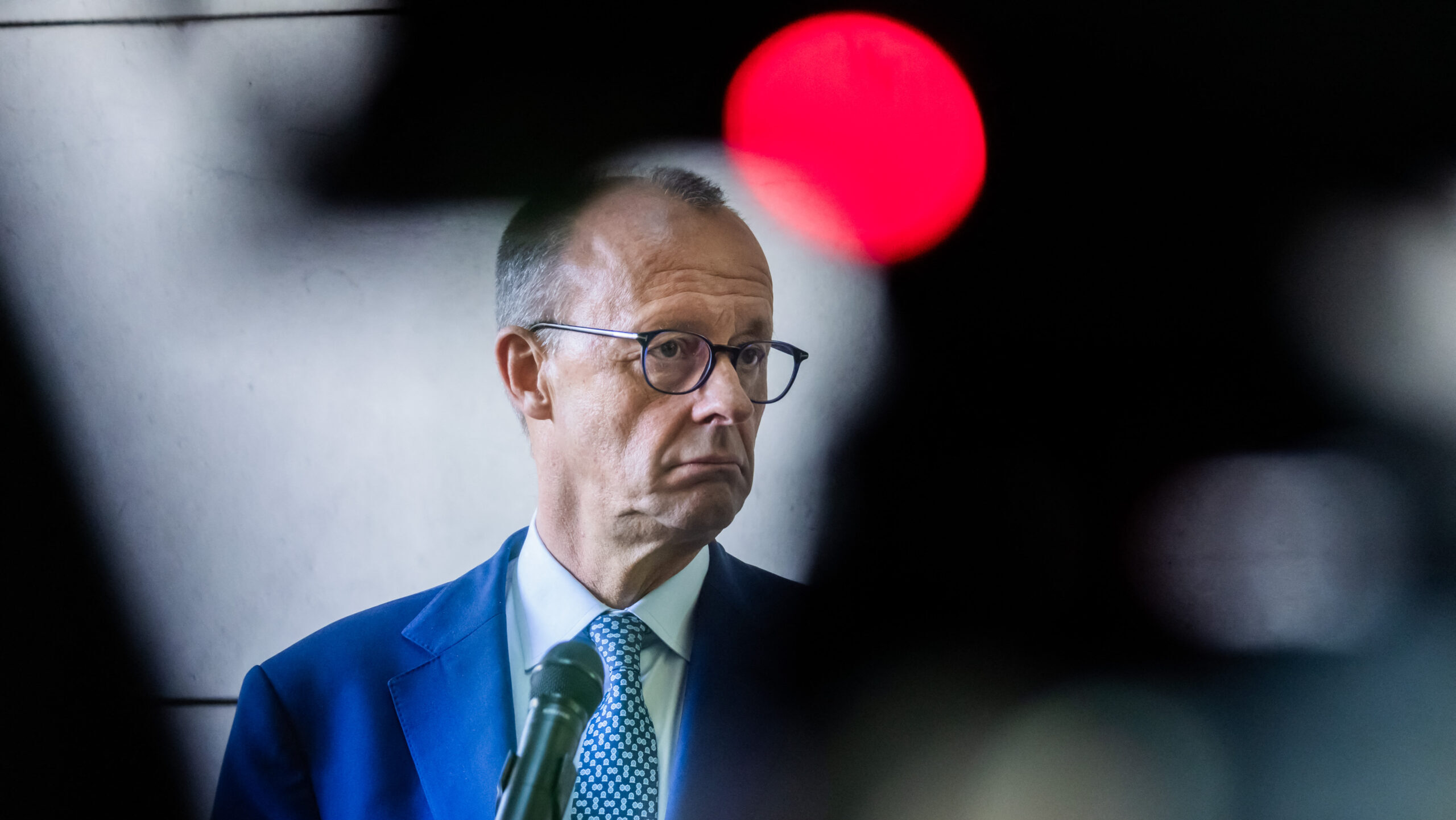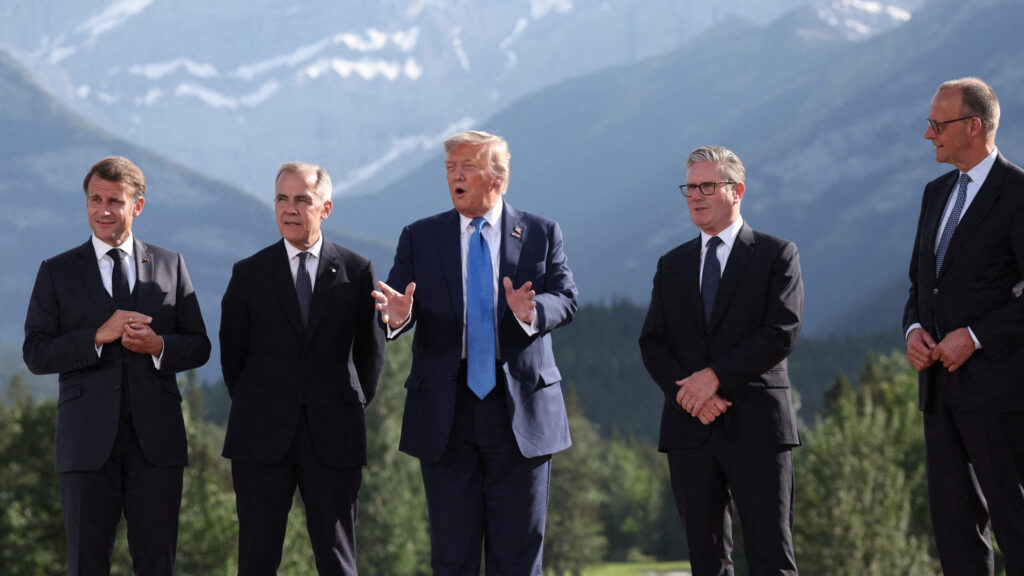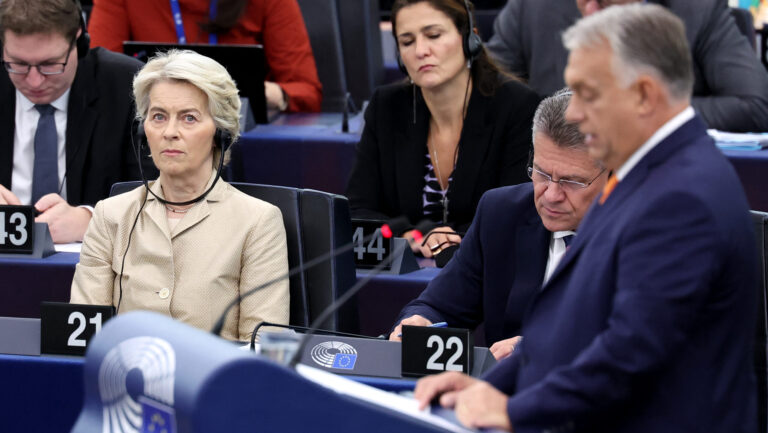Chancellor Friedrich Merz’s observation about Germany’s changing cityscape has unleashed a moral firestorm, revealing the prohibition of reality in contemporary discourse. This analysis examines how the political establishment has abandoned empirical truth in favour of manufactured outrage, whilst migration statistics expose a demographic and fiscal catastrophe. With 740,000 illegal crossings and merely 180,000 deportations since 2015, Germany requires institutional courage and a federal deportations agency to restore sovereign control before the silence of the many becomes the legend of the last days.
Germany as Laboratory for Post-Factual Politics
Across the Western world, governments face mounting pressure to acknowledge the consequences of mass migration. Yet nowhere is the prohibition against speaking this truth more absolute than in contemporary Germany. Once a beacon of orderly governance and civil debate, Germany has transformed into a laboratory for what happens when political correctness overrides empirical observation. What was once taken for granted—namely, the naming of what one sees and experiences—has today been elevated to a dangerous taboo. To speak the obvious about demographic transformation, public safety, or cultural integration is to provoke a moral tempest that sweeps aside all debate and casts every doubt into the abyss of social damnation. This is not mere rhetorical excess. It is the lived reality of German public discourse in 2025, where statistical facts about migration are treated as heresy and where politicians who dare describe observable changes to urban life face coordinated campaigns of denunciation. The case of Chancellor Friedrich Merz exemplifies this phenomenon. His recent comments about Germany’s changing cityscape have triggered precisely the sort of coordinated outrage that makes rational policy discussion impossible.
The Merz Affair: A Study in Manufactured Outrage
Chancellor Friedrich Merz uttered a sentence that, in postwar Germany, was as banal as October rain. He spoke of the cityscape’s transformation through migration, and in an instant, the entire orchestra of moral outrage struck up. Politicians, the media, and sensibility elites promptly intoned the liturgy of victimhood culture. The capital of reason was transformed by a stroke of the pen into a citadel of rhetoric, where fact is sacrificed to feeling. A country that has taken in millions of new arrivals may not even discuss the transformation of its streets, squares, and public spaces without immediately incurring the anathema of racism.
The High Priestesses of Anti-Racism Industry
Society resembles a theatre whose scenery is draped in fabrics of outrage, victimhood mythology, and the manufacture of enemy images. The conservative establishment in particular stands in the orchestra pit, incapable of striking its own theme, whilst the protagonists of the anti-racism industry perform their roles with fervour. At the heart of this apparatus sits a left-green neo-Marxist caste that has captured Germany’s cultural and political institutions. Claudia Roth, former Minister of State for Culture under the previous government and now the Green Party’s spokesperson for development cooperation, and Katrin Göring-Eckardt, former Vice President of the Bundestag and long-serving Green parliamentarian, exemplify this stratum. Both senior figures in the Green Party embody the transformation of German progressivism from ecological concern into ideological enforcement. Alongside them stands Luisa Neubauer, Germany’s Greta Thunberg, the climate activist who has seamlessly pivoted from environmental activism to immigration advocacy. Together they form the high priestesses of a new cult that recognizes only one duty: the eternal charge of racism. Their daily routine demands the ritual of scandalization, for only the constant creation and cultivation of enemy images lends meaning to their endeavours. Their existence is the metaphor of the muezzin who calls to prayer, though the minaret has long been made of papier-mâché. Victim status thus becomes a retail licence in the supermarket of the outrage industry.
The Professional Victim Class
Particularly striking is the sensitivity of those who have attained prosperity, security, and participation in Germany. Professional migrants who in other countries would struggle with existential concerns claim for themselves the role of the eternally disadvantaged and invoke structural exclusion that lacks any factual foundation. They have benefited from the rule of law, from an open society, and from the welfare state, and yet complaints about alleged racism have become the daily bread of identity politics. The scene resembles a guest at a lavishly set table who, whilst breaking bread, laments the shortage of wine. The indictment of the supposedly racist country has advanced to political capital, nourishing careers in associations, ministries, and NGOs.
‘The scene resembles a guest at a lavishly set table who, whilst breaking bread, laments the shortage of wine’
The Statistical Reality Behind the Silence
The conservative establishment has long since abandoned the obligation to describe reality. Where the civil service once looked upon its integration achievements with pride, silence now reigns. The facts present themselves like erratic boulders across the moor that no one wishes to clear away: 13.6 million legal arrivals since 2015, over 740,000 illegal border crossings, and a pitiful enforcement record of merely 180,000 deportations. Since Angela Merkel opened the borders, an additional 5 million people have come to Germany, half of them young men from Africa and the Middle East. Of the migrants who arrived ten years ago, approximately 35 per cent are unemployed today and live on social transfers. The fiscal burden is crushing: the citizens’ benefit alone devours 58 billion euros annually, with nearly 50 per cent of recipients being foreign nationals.
In parallel, hundreds of thousands of highly qualified Germans emigrate each year, often well-educated professionals turning their backs on the demographic and cultural transformation of their homeland. These statistical realities expose the failure of a policy that, out of fear of uncomfortable truths, closes its eyes to the demographic and fiscal catastrophe. The balance of society has been set in motion, yet dialogue about these dislocations remains shadow-boxing, in which one strikes only one’s own reflection.
The Erosion of Urban Culture
Public spaces are no longer sites of liberal community but arenas of retreat. Railway stations, parks, and squares drift into grey zones whose new rules derive not from parliaments but from the councils of parallel societies. The erosion of urban culture is Germany’s great, invisible problem. The driving force of the present is not racism but the displacement of middle-class values, the shifting of standards through mass migration, and the institutional impotence of a society that falls silent from fear of moral ostracism.
The Political Economy of Perpetual Crisis
The explanation is simple yet disturbing: the artificiality of the discourse serves as a stratum for whom the perpetuation of the problem has become the condition of political existence. Where public-service broadcasting steers the debate with a mixture of sentimentality and ritual, there the establishment is ashamed of its clear judgment. The manifest truth, that the transformation of public spaces and the rise in certain categories of crime are connected to uncontrolled migration, is smothered beneath a blanket of collective silence.
The Conservative Capitulation
The failure of the custodians of the old social peace lies not in error but in flight from judgment. Even banal truths become fuses from which the explosive power of Germany’s discursive order hangs. The question of whether migration may be discussed has become the defining question. Every half-hearted attempt to raise it is pursued as sacrilege. The conservative establishment, once a pillar of rationality, has become a bystander to its own demise, which it now applauds only in silence.
Blueprint for a Resilient Republic
What is lacking is institutional courage for a resilient republic. The solution lies not in half-measures or administrative tinkering but in a fundamental restructuring of Germany’s enforcement architecture. The country requires a Federal Agency for Deportations and Border Security, modelled on proven frameworks, whilst adapted to Germany’s constitutional structure. This transformation demands bold legislative action across multiple levels of German law.
Constitutional Foundations for Federal Control
The constitutional foundation must be laid through amendments to the Basic Law (Grundgesetz). A new Article 87g Grundgesetz (GG) would establish the federal deportation agency as a supreme federal authority with its own administrative substructure, whilst modifications to Articles 83 GG and 84 GG would transfer execution authority from the 16 states to federal control. Article 87, paragraph 3, GG already permits the creation of independent supreme federal authorities by federal law for matters within federal legislative competence, but immigration enforcement remains fragmented across state-level immigration offices (Ausländerbehörden). Complete federal control requires either a constitutional amendment or the aggressive use of Article 87(3) GG, combined with Article 108a GG, to override state objections. This path requires a two-thirds majority in both the Bundestag and Bundesrat for constitutional changes, demanding political will that transcends partisan calculation.
Statutory Architecture for Enforcement
The statutory architecture must follow swiftly. The Residence Act (Aufenthaltsgesetz) requires comprehensive revision: Section 58 must mandate federal execution of all deportations, transferring authority from state immigration offices to federal control; Section 62 must establish deportation detention (Abschiebungshaft) as the mandatory default rather than discretionary exception, with dedicated federal detention facilities in each state; Section 60a, which permits toleration status (Duldung), must be abolished entirely to eliminate the current practice of indefinite non-enforcement that has created a shadow population of over 300,000 persons. The Asylum Act (Asylgesetz) must be amended to transfer deportation order authority from the Federal Office for Migration and Refugees (BAMF) to the new agency, with procedural timelines compressed from current multi-year processes to a maximum of 72 hours.
The ICE Model: Operational Excellence in Enforcement
The organisational blueprint is clear. Immigration and Customs Enforcement (ICE) in the United States employs over 20,000 staff, the majority of them sworn enforcement officers with executive powers, distributed across more than 400 offices domestically and abroad. This structure demonstrates what consistent sovereignty looks like in practice: a centralized command structure, specialist detention facilities, dedicated removal flight operations, and bilateral removal agreements with countries of origin. Germany must replicate this model through a new Federal Deportation Agency Act (Bundesabschiebungsbehördengesetz) establishing a supreme federal authority under Article 87(3) GG.
Six Pillars of Enforcement Infrastructure
First, establish Federal Deportation Task Forces with arrest authority in all 16 states, operating under unified federal command. These task forces must function around the clock with dedicated detention facilities in each state, ending the current practice of catch-and-release. Officers must possess powers equivalent to those of the Federal Police (Bundespolizei) under Article 87(1), sentence 2, GG, including the authority to conduct raids, make arrests, and execute removal orders without state approval.
Second, create specialized chambers within existing administrative courts (Verwaltungsgerichte) with streamlined procedures and mandatory timelines. Whilst Article 19(4) GG guarantees access to courts and cannot be eliminated even by constitutional amendment (protected by Article 79(3) GG as part of essential rule of law), judicial review can be statutorily confined to questions of identity and country of origin, with appeals limited to a single instance and decisions required within 72 hours of filing under revised procedural rules in the Administrative Court Act (Verwaltungsgerichtsordnung).
Third, mandate cooperation agreements with all recipient countries, making development aid and trade preferences conditional on the acceptance of returnees. The German Development Ministry must subordinate its assistance programmes to deportation compliance by amending the Federal Ministry for Economic Cooperation and Development Act. Countries that refuse to repatriate their nationals must face immediate suspension of visa privileges for their citizens under Section 6 of the Visa Regulation, as well as targeted economic sanctions.
Fourth, the agency must command its own air transport fleet for removal operations, ending reliance on commercial carriers and their susceptibility to activist disruption through amendments to aviation law permitting federal charter operations immune to private carrier refusals.
‘Countries that refuse to repatriate their nationals must face immediate suspension of visa privileges for their citizens’
Fifth, implement biometric exit controls at all border points to track overstays and issue automatic deportation warrants through amendments to the Federal Police Act (Bundespolizeigesetz) and the implementation of the Schengen Borders Code. The current system relies on voluntary departure; exit verification must become mandatory and universal.
Sixth, amend Section 95 of the Residence Act (Aufenthaltsgesetz) to criminalize illegal presence as a criminal offence, not merely an administrative violation, with mandatory minimum sentences of six months imprisonment, creating both a deterrent effect and funding removal through reduction of social welfare expenditure. Those who enter or remain illegally must face imprisonment, followed by permanent inadmissibility to Germany and the entire Schengen zone, under enhanced Section 11 of the Aufenthaltsgesetz.
Financial Architecture and Cost Recovery
The financial architecture requires statutory clarity and accountability. The agency must receive ring-fenced funding indexed to the number of completed removals, creating institutional incentives for aggressive enforcement rather than bureaucratic delay. Operational costs must be recovered through multiple statutory mechanisms: seizure of assets from removed persons under expanded Section 67 Aufenthaltsgesetz; substantial fines on employers who hire illegal labour under revised Section 404 of the Social Code (minimum 50,000 euros per violation rather than current nominal penalties); and billing of origin countries for removal flight expenses through bilateral treaties. European Union restrictions under the Return Directive (2008/115/EC) must be challenged through coordinated diplomatic pressure for reform, with Germany leading a coalition of enforcement-minded member states whilst invoking Article 72 of the Treaty on the Functioning of the European Union to claim national security exceptions where necessary.
The Hour of Decision
The cityscape debate is the Parnassus from which the future of German public life is being written. It is the writing on the wall of our epoch, for it reveals how deeply silence has migrated into the soul of a society. Germany stands at the gateway to a new age. The prohibition of reality is the water that ceaselessly laps at the dam of civility. The masonry still holds, yet the damp of ignorance has long since pervaded every stone. Germany stands on the threshold of a post-factual age; a glance out of the window suffices to know that the storm has already broken. This is the hour of decision: whether the country persists in self-delusion forever or claims the freedom to speak with clear sight. The taboo of the obvious has become the new sanctity. For whoever does not name the unspeakable excommunicates himself from the community of speakers, and the silence of the many becomes the legend of the last days.
The legal pathway is clear; only political courage is absent. Germany possesses the constitutional tools through Article 87(3) GG, the legislative competence through Article 74(1) number 4 GG (citizenship and immigration), and the democratic mandate through repeated electoral victories of enforcement-minded parties. The country must build these structures now or accept irreversible demographic transformation as the verdict of its own institutional cowardice.
Related articles:







